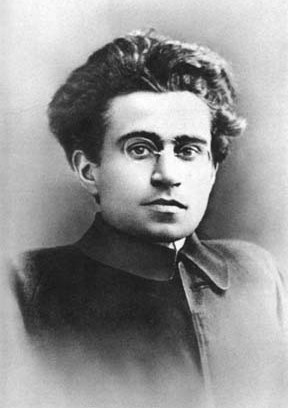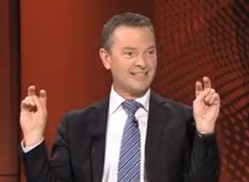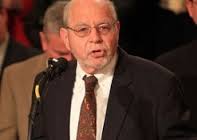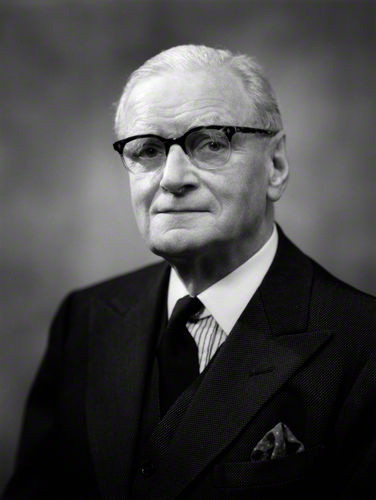
The Enemy: Antonio Gramsci, revolutionary communist who understood the need for “the long march through the institutions” to capture a mass culture. A serious man who died while serving a prison sentence for his beliefs. The essence of those beliefs now dominate popular cultural and political discourse. Political visionary. Ideological victor.
It was drawn to my attention that this week’s episode of the ABC programme Q & A began with a rather “strong question”.1 Normally I regard this programme as a form of masochism for any self-confessed Conservative, a bit like a first century Christian wanting to kill time at the Colosseum. However, curiosity got the better of me, and I decided to have a peek on line.
As usual, the panel of guests, which is supposed to reproduce a variety of opinions, looked more like a who’s who of agenda-speak, with the token ‘Conservative’ being Christopher Pyne. Also present was comedian Wendy Harmer (although not so described), who seemed to exhibit an immediate dislike for Mr Pyne, presumably because he is one of these ‘Conservative fascists’ in the new government. If Mr Pyne is such a man, then ‘Mizzzz’ Harmer had best never meet me – she may spontaneously self-combust.
In any event, the show did indeed launch with a provocative start when a young man named Jakov Miljak shot this rather pointed question to Mr Pyne:
“Now that you are in power, what steps will the coalition take to reduce the influence of a progressive, left-wing agenda in our education system; an agenda which continues to emphasise a black-armband view of history and whose teaching methods are leaving today’s generation of students deficient in material facts and concrete literary skills.”2
Mr Pyne responded in a rather disappointing political style – quite willing to emphasise the coalition’s policy initiatives (especially a review of the national Curriculum), but at the same time he played down the whole notion of ‘culture wars’ and appeared to be trying to ‘conciliate’ matters in a manner his ideological opponents would never do. They would simply view any ‘compromise’ on the part of an opponent as a deposit for future payment in full.
Despite the fact that the show then degenerated into a love-in of liberalism, with the respective ‘left’ and ‘right’ wings of it flapping against each other and not a skerrick of Conservatism to be seen, the importance of this young man’s question did not escape me. What the question represented to me was a glimmer of hope for the future of counter-thinking in the next generation.
The problem for Conservative thought in this country is that it tends to lie comatose upon its laurels with every coalition victory. This leaves the Coalition with the task of appeasement in only one direction – the appeasement of progressive ideologues who have no genuine taste for appeasement at all. What is too often missing, is a chorus of Conservative voices holding the coalition to account for a Conservative agenda. This question, to me, represented such a voice. It may have been a pre-prepared ‘Dorothy Dixer’ – I wouldn’t know – but I definitely regard the effect of it (intended or not) as being to generate in the mind of the listener, the notion of holding the Coalition to account from a Conservative standpoint.

The Useful Idiot: Christopher Pyne, a product of the “long march through the institutions” is therefore unsurprisingly considered to be a Conservative politician today. Minister of State. Market reductionist. Universalist liberal. Clown.
If Conservatives (and I mean that in the proper as opposed to adjectival sense) ever expect to halt the erosion of the Traditions that inform them, then they have little option but to proffer a list of demands to counter that of progressive ideologues who waste absolutely no time in drafting up theirs. After the election, the Progressives launched an immediate, pre-emptive strike on the issue of gay marriage, faster than the most bellicose of Neocons could ever hope to ‘take out’ Tehran. They know what they want and what it takes to get it. Part of their victory formula is relying on Conservatives to never be more than keyboard warriors, so that any government that they lobby will be highly susceptible to taking a “jump to the left” – but unlike the authentic steps when dancing ‘The Timewarp’ there will be no complementary ‘step to the right’.
It is natural to the disposition of the Conservative to simply ‘live’ his life and eschew ideology of any kind. The Conservative can be rebellious and especially eccentric, but one thing he can’t afford to be in modern Australia is complacent. Cultures and Traditions aren’t matters to be left in the hands of elected politicians to preserve. When ideologues start to rock the cradle, by engaging in a Gramsciite grab for the institutions of education, they do intend to rule the world.
Mel Bradford once articulated: “Reaction is a necessary term in the intellectual context we inhabit in the late twentieth century because merely to conserve is sometimes to perpetuate what is outrageous”3 If Australian Conservatives don’t want the ‘necessary reaction’ to be too uncomfortable, then they are best advised to follow young Jakov’s lead and pose some questions directed at holding their ‘representatives’ to account – even if such representatives are supposed to have a Conservative’s best interests at heart.
– Luke Torrisi
The author is a legal practitioner and the host of Carpe Diem, Sydney’s only explicitly Traditionalist and Paleoconservative radio programme broadcasting on 88.9FM, between 8:00 to 10:00pm, Mondays.
End notes
- Transcript, “Independent Thinkers and Independent Schools” Q&A (Australian Broadcasting Corporation, 28 October 2013) <www.abc.net.au/tv/qanda> (accessed 5 November 2013).
- Ibid.
- M. E. Bradford, The Reactionary Imperative (Sherwood Sugden & Company, 1990) p i.
Editorial note
- All caption text is by SydneyTrads Editors.





Dear Mr. Torrisi,
I agree and disagree with your thoughts.
Firstly I absolutely agree that we need a “list of demands”, one thing I find is many Traditional Conservatives know what they oppose but they are less sure about what they support. We as individuals and as a movement need to spell out, for our own sake as much as anything, what we believe, what we support and start offering alternatives to what people hear day in and day out.
Secondly I disagree that we are reactionaries, the past should be our guide not our future. Our knowledge of the past and what has worked and what has not worked is one of our greatest strengths. But when we confuse the future with the past we will fail. Our objective must be to use Conservative principles and to inform people firstly that they exist, secondly that they are not Right or Economic Liberalism and why and thirdly to insist that these principles are applicable to the lives of people and families, business and Government.
Thirdly I am not a Reactionary, I am a Traditional Conservative. It is not reactionary to support traditional marriage, it is common sense. It is not reactionary to support children having both a mother and a father it is common sense. It is not reactionary to support men and women behaving as men and women respectively, it is common sense.
Tradition is not what has happened in the past, we reject much of what has happened in the past, it is in most cases common sense. We should be pushing this idea.
Yours Sincerely,
Mark Moncrieff
Dear Mark,
Thank you for your comment. We have been asked to post the following in Luke’s name as he is not in a position to post it himself at this moment:
I believe Luke may be right. Something you may wish to consider is that the state of reaction is, to put it in a very round-about way: ‘circumstantially contextual’. Given we live in an almost universally liberal environment, being a Traditionalist Conservative is indeed a reaction to the status quo, both in thought and action. Thus I think you may be confusing a word which has leftist ‘baggage’ with its actual, objective meaning in Luke’s article.
It is also interesting that Luke refers to Kirk’s “tenth principle” in support of his explanation. You will recall that paleoconservative theorists such as Paul Gottfried have made the point of criticising the manner in which Kirk’s principles have themselves evolved over time. Kirk’s originally published criteria for conservatism (see: The Conservative Mind) were somewhat different: reaction was not in fact mentioned. It was only in later days that Kirk himself understood this inevitable drift towards reaction for the sincere conservative as liberalism became more and more hegemonic.
Of course, none of us are breaking new ground here; note Evola’s famous dicta, where he stated that “Traditionalism is the most revolutionary ideology of our times.” Certainly, we are not Jacobins, but what is needed for cultural and national restoration is something far greater than mere reform, and this fact should be more evident with every passing year to the Traditionalist.